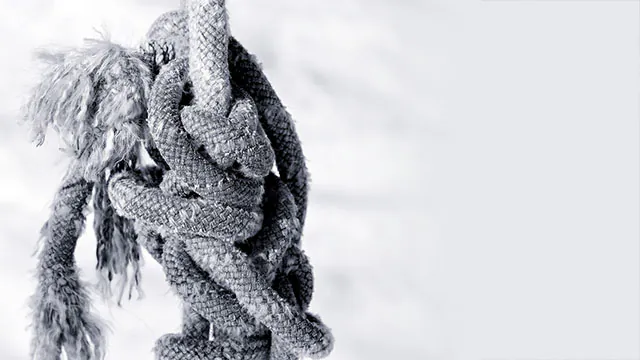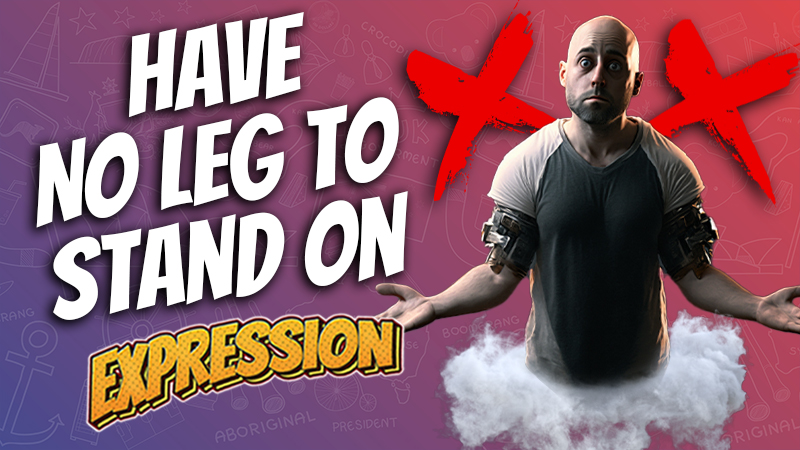AE 379 – Expression: To Have A Few Roos Loose In The Top Paddock
Learn Australian English in this episode of The Aussie English Podcast where I teach you to use the expression TO HAVE A FEW ROOS LOOSE IN THE TOP PADDOCK.
AE 379 – Expression:
To Have A Few Roos Loose In The Top Paddock
Well, I’ve had a look around and I think we can safely assume I now know less about motors than I did when I first lifted up that bonnety thing.
Now what?
Let’s just not think about it for the moment and eat brekkie shall we?
Oh, that’s a novel idea! Let’s stuff ourselves to death. Imagine the headlines: “Whales beach themselves in The Outback”, “Mystery Bumsticks Dead In Drag”.
G’day, guys! Welcome to The Aussie English Podcast, The Aussie English Podcast. The number one podcast for anyone and everyone wanting to learn Australian English, whether you want to learn to understand what that flippin’ and hell Aussies are on about when they having a yarn as I say in every intro or you want to actually learn to speak like an Australian, you’ve come to the right place, and that is my goal.
So, The Aussie English Podcast is brought to you by The Aussie English Classroom. That is the online classroom designed to teach you Australian English even faster. You complete courses in there full of lessons and quizzes that cover Australian vocab, and there’s heaps of exercises like listening comprehension exercises, phrasal verb exercises, pronunciation, connected speech, and grammar exercises, designed to take your English to the next level. So, you can try that for $1 for the first month when you sign up and give it a go at TheAussieEnglishClassroom.com.
Intro Scene:
Anyway, the opening scene there, guys, the opening scene that I put at the start of this podcast is a scene from the movie Priscilla Queen of the Desert, Priscilla Queen of the Desert. In this scene the main characters, the three main characters, are stranded in the desert, and they’re trying to repair a car. The first voice that you heard there, I don’t know if you will have spotted it, but that is Hugo Weaving, Hugo Weaving. He’s a famous Australian actor. He has been Mr Smith in The Matrix series, you might know that line of his, “Mr Anderson”, you know, whenever he comes up against Neo. He’s also been the elf king Elrond out of the Lord of the Rings movie series. So, you’ll know this guy when you see him.
Another actor there is also Guy Pearce, who’s a famous Australian actor. He’s been in loads of Australian films, loads of Hollywood films, as well. One of my favorite of his is Memento. And he’s also been, more recently, in Iron Man 3 and the most recent Alien movie.
Anyway, this scene is from Priscilla Queen of the Desert, which is a film about to drag performers and a transgender woman. So, a woman who’s changing her gender, a man who’s changed his gender to be a woman. And these guys are traveling across the desert in Australia to perform their unique style of cabaret. So, they’re drag performers. They wear women’s clothing, and it’s very eccentric. It’s a big part of gay culture, but it’s a really hilarious film, guys. So, definitely check it out. You’ll learn a lot about Australian culture, especially, the kind of clash between gay culture from the cities and the Australians who live in The Outback, and sort of how they deal with it. So, yeah. Priscilla Queen of the Desert. It’s a great film with some great Aussie actors. I really recommend that you go and check it out.
Joke:
Let’s start with a joke, as usual, guys. Today, I’ve got a joke for you. It’s a bit of a ‘crummy’ joke, which you’ll get in a sec. But the joke is: Why did the bickie go to the hospital? Why did the ‘bickie’, a slang term for biscuit, go to the hospital? Because he felt a bit ‘crummy’. *Badoomsh!* Do you get it? He felt a bit ‘crummy’. So, ‘crummy’, in this case, this is a play on words, ‘crummy’ in this case, “he’s feeling crummy”, that’s spelled c r u m m y, and that means to feel unwell, to feel sad, to feel unhappy. So, “I don’t feel good, today. I feel a bit crummy.”.
However, the pun here is with the word ‘crumby’ spelt C R U M B Y. So, “a crumb” is a piece of say the bickie, a little morsel of food from usually things like bread or biscuits or cookies, whatever it is. That’s a crumb. And if a piece of food like that is “crumby”, it’s like it’s covered in crumbs or things that resemble crumbs. Okay? So, if you eat a biscuit over a table the surface of the table might become crumby. Anyway, that’s the pun there. Why did the bickie go to the hospital? Because he was feeling ‘crummy’. So, the pun on the words “crummy” to feel unwell and the word “crumby” meaning covered in crumbs.
Expression:
So, today’s expression. Let’s dive into that as usual, guys. Today’s expression is “to have a few roos loose in the top paddock”. It’s a mouthful. (There’re) a lot of words in there. I think that is probably the longest expression I’ve ever done on this podcast. So, “to have a few roos loose in the top paddock”, and you might also hear this as “to have a few kangaroos loose in the top paddock”. And remember that “roo”, “a roo” or “roos” the plural, many roos, is a slang term, it’s the shortened abbreviation version of the word “kangaroo”.
So, this expression was suggested by Lima in the Aussie English Virtual Classroom Facebook group, guys. If you get on Facebook you can search Aussie English Virtual Classroom. It’s a group where you guys get to do exercises and chat, and every Monday I put out a post asking for expression suggestions. And then, you guys can vote on the expression for the week’s podcast.
Definitions:
So, let’s go through and define the words in the expression to have a few roos loose in the top paddock.
Okay, “to have”. In this case, “to have” is to possess. Okay. To possess something, you have something. To possess something, you have it.
“A few”. “A few” means a small number of something. So, if you have a few roos, you have a small number of them. You don’t have a load of them, you don’t have a lot of them, you only have a few of them.
“A roo” as we said previously is a kangaroo.
“Loose”. If something is “loose”, it is not tied up. It is not confined or shut in. For example, if it’s a kangaroo or an animal. It’s not controlled. So, the thing is free to run around, to do what it wants. It is loose.
“In”. I’m sure you guys will know “in”. If you’re in something, you are inside of it, you are within something, and it’s the opposite of “out” or “outside” of something.
The word “top”. The word “top” means uppermost. Okay? So, if you’re at the top of something, you’re as high as you can possibly get, you’re at the uppermost point. So, the top paddock would be the paddock at the very top, at the highest point, at the uppermost point.
And the last word in this long long long expression is “a paddock”, “a paddock”. “Paddock” is spelt P A D D O C K, however, I’d say paddock /ˈpædək/. Okay? Notice the schwa /ə/ in there. (That’s) just a side note. “Paddock” – /ˈpædɒk/ is how it’s spelt and how you would say it phonetically, but I say paddock /ˈpædək/, paddock /ˈpædək/. So, “a paddock” is a field or some kind of plot of land that is enclosed by fencing or defined natural boundaries. Okay? So, you might go into a forest and there’d be a paddock, a field, a meadow, in the middle there, and it’s sort of defined by natural boundaries like trees. But most commonly, you’re going to go to a farm and you’re going to see a paddock, which is a plot of land enclosed by a fence. It might be full of wheat. It could have corn in it or sugarcane or it could have livestock in there like cows or sheep or goats, horses, whatever it is, it’s a field that is enclosed by something.
Expression Definition:
So, let’s define the expression as usual, guys, to have a few roos loose in the top paddock or to have a few kangaroos loose in the top paddock. This is a very Australian expression, guys, and it means to be crazy, okay, to be insane, to be nuts, to be bananas, to be bonkers.
So, it can also mean as well to act, think, or behave in an eccentric, foolish, or nonsensical manner. So, you’ll often use this for people who are loopy, crazy, don’t have control of their mind, you know, they’re a bit strange, or they act in a strange way.
You might also hear this as “to have a few screws loose”. So, I think that’s probably where this expression has originated from. That’s a sort of American or British one you might hear quite a bit. He’s got a screw loose or he has a few screws loose. And Australians have, obviously, just changed it to make it an Australianism to make it about Australia by saying, instead of “a screw”, you’ve got a few roos loose in the top paddock. Okay?
Another one similar to this too, that I might add, is “to be a few sandwiches short of a picnic”. If someone’s a few sandwiches short of a picnic that’s sort of saying that they’re a bit dumb or they’re a bit strange. Okay? So, yeah, anyway. Both of these expressions are pretty common in Australia.
Examples:
So, let’s go through some examples, as usual guys, of how I would use this expression, the kinds of contexts you’re likely to come across when you hear this expression.
1.
Firstly, number one, imagine there’s an old lady out in the streets, some old sheila. She stands on the corner of a street in this city and she’s yelling at strangers. So, she’s yelling at people walking by who she doesn’t know. She’s clearly totally nuts, she’s crazy, she’s got a screw loose, and she is a total nuffy. Okay. So, she’s just… she’s lost her mind. You might say, if you saw this happening, that this lady was just screaming at people in the street, you might say, “Wow, this lady has a few kangaroos loose in the top paddock. I think she’s got a few screws loose. I think she’s got a few roos loose in the top paddock. I think she’s nuts. She’s crazy. She’s got a few kangaroos loose in the top paddock.”.
2.
Example number two. Alright, example number two. A mate asks you for a loan. He wants to borrow some money. So, he wants you to lend him some money. He wants to borrow some money from you. Maybe it’s not a small sum of money either. It’s $5,000. So, he wants to borrow $5K from you, he wants to borrow $5 grand from you. Those are just different ways of saying a thousand. $5K, $5 grand, $5,000. And, maybe you ask him, “What do you need this money for mate?”, you know. “Is there some kind of issue are you in financial trouble? Can you afford to pay for your food or bills? Is that the issue?”. Maybe he responds by saying, “Nah, mate, (I) just want to go on a holiday. Just want to take the missus out on a holiday. No, just need the money for that. That’s really it.”. If he said that to you, you might say to him, “Do you have a few roos loosen the top paddock, mate? Why would I give you $5,000, why would I give you $5 grand, why would I give you $5K, so that you can go on a holiday? Have you got a few roos loose in the top paddock, mate? What are you smoking? Are you crazy? Have you got a screw loose?
3.
The last example here, guys, is that imagine you have a son who’s just bought a new car. (It) could be a sedan a wagon or a ute. For teenage boys in Australia they’ll most often get cars of the brands Holden and Ford. Those are two very popular brands in Australia, and they’ll be a bit of rivalry between kids who get these. They usually prefer Holden over Ford or they might prefer Ford over Holden. Anyway, imagine he has spent a bit of moolah, a bit of cash, a bit of money, quite a few bob, on souping his car up. Okay? So, he’s bought the car and then his souped it up, which is a way of saying that he has modified it to be faster, to be more powerful. So, now it’s really powerful. He goes out one night with his mates hooning around, so driving recklessly. Maybe he does a few burnouts, he does a few doughies, and he gets pulled over by a cop. So, a copper pulls him over, a cop pulls him over, and he calls you up and tells you that he’s* been picked up by a cop and taken to the cop shop. So, you’ve been picked up by a police officer and taken to the police station, “the cop shop”. You might totally lose your shit at him and ask, you know, “Have you totally lost your mind? Have you got a few roos loose in your top paddock, mate? What the hell… what the fuck do you think you were doing?”. You know, you might say “What the hell?”, if you’re wanting to be polite, but if you’re really furious, you can up that by swearing and saying, “What the fuck?”. Okay. So, I don’t often swear, but I like adding it in there if it makes sense to give you a bit of context, ’cause you might hear it.
Anyway, those are the three examples, guys. I hope it helps you understand how to use the expression “to have a few roos loose in the top paddock” or “to have a few kangaroos loose in the top paddock”. It means to be crazy or to act, think, or behave in an eccentric, foolish, or nonsensical manner.
So, let’s go through a listen and repeat exercise as usual, guys. This is your chance to practice your pronunciation in English, and specifically your Australian pronunciation if you want an Australian accent. Okay? So, listen and repeat after me, guys. Let’s go.
Listen & Repeat:
To
To have
To have a
To have a few
To have a few roos
To have a few roos loose
To have a few roos loose in
To have a few roos loose in the
To have a few roos loose in the top
To have a few roos loose in the top paddock
To have a few roos loose in the top paddock
To have a few roos loose in the top paddock
To have a few roos loose in the top paddock
To have a few roos loose in the top paddock
Good job, guys. Now let’s use this expression in a sentence. Let’s go.
I’ve got a few roos loose in the top paddock
You’ve got a few roos loose in the top paddock
He’s got a few roos loose in the top paddock
She’s got a few roos loose in the top paddock
We’ve got a few roos loose in the top paddock
They’ve got a few roos loose in the top paddock
It’s got a few roos loose send that top paddock
Great job, guys. You might notice that I’ve said that a little more slowly than usual, but I’m really trying to emphasise the connected speech there, guys. So, there’s quite a few things going on in those sentences that just went through, and I’ll go through those in The Aussie English Classroom. So, there’re things that I can see now like contractions of the verb “to have”, the t flap is in there, there’s a few links between different words as well, and omissions of certain consonants. So, if you want to learn the connected speech used by an Australian, used in those sentences just now, I’d really recommend joining up to The Aussie English Classroom and giving it a go. Remember, it’s one bark one dollar for your first month. I really, really want you to get in there. Give it a go. You’ve got nothing to lose, and yeah enjoy it guys.
Aussie Fact:
Anyway, before we finish up let’s go through an Aussie fact today, guys.
So, seeing as we were talking about kangaroos in this expression I wanted to look up and find out who the first European was to come across, to see, to discover, to find, a kangaroo. Obviously, indigenous people had been in Australia for 40-60,000 years prior to the European settlement of Australia, the European colonisation of Australia, and so, they will have come across kangaroos well and truly before Europeans. But I was interested in seeing who the first European was.
And so, when I looked this up it turned out that it was James Cook. So, even though James Cook wasn’t the first European to get to Australia, or to, quote-unquote, “discover Australia”, despite the fact that many people think he was, he and his crew were the first known Europeans to sight a kangaroo, so, at least to record the fact. Right? So, there may have been previous Europeans who did so, but they never wrote it down.
So, as Cook sailed up the east coast of Australia he was mapping the coastline. He was trying to draw it to help other ships, to help other people who came to Australia. As he was doing this up the coastline of Australia his ship, the Endeavour, struck the Great Barrier Reef, and it nearly sank. So, the Endeavour was eventually brought for repairs into the harbour that is formed by a river now known as The Endeavour River, for obvious reasons. He landed there on the 10th of June in 1770, and Cook and his crew spent about two months or so repairing his ship in this bay. During this time, he allowed his botanist Sir Joseph Banks heaps of time to go ashore and check out the flora and fauna in the surrounding area, and on the 14th of July 1770 a crewman shot a strange-looking, unknown animal, and this turned out to be a kangaroo. So, the creature was brought back to his camp for examination. The skin was taken back to England eventually. And the word ‘kangaroo’ is believed to have come from the Aboriginal word ‘gangurru’, which is a Guugu Yimithirr word, I hope I said that right, referring to the grey kangaroo. So, ‘gangurru’. And this word was recorded by Sir Joseph Banks as ‘kangaru’ or ‘kanguru’.
And so, I thought that I would read to you the diary entry where Captain Cook talks about the kangaroo and what his first impressions of this animal were. So, here we go.
The head, neck, and shoulders of this animal was very small in proportion to the other parts. The tail was nearly as long as the body thick next to the rump and tapering towards the end. The fore legs were 8 inches long and the hind 22. Its progression is by hopping or jumping 7 or 8 feet at each hop upon its hind legs only, for this set makes no use of the fore, which seemed to be only designed for scratching in the ground, and the skin is covered with a short hairy fur of a dark mouse or grey colour. Excepting the head and ears, which I thought was something like a hare’s, it bears no sort of resemblance to any European animal I ever saw. It is said to bear much resemblance to the jerboa excepting in size. The jerboa being no larger than a common rat.
So, there you go, guys. Captain Cook and his crew are apparently the first Europeans to have ever seen a kangaroo in Australia. I hope you enjoy this episode, guys. I hope you enjoy the Aussie fact.
Outro:
A bit of outro spiel as usual, guys. I hope you’re enjoying the podcast. You can download the MP3 and the written transcript for this episode when you visit TheAussieEnglishPodcast.com. You can click the link that will be attached to this episode, and there are a bunch of other resources for today’s content as well.
Remember, it’s my mission here to help you learn Australian English as best I can, guys. So, if you have some feedback or if you have some suggestions feel free to send me a message on the Aussie English Facebook page. Simply jump on Facebook and search ‘Aussie English’, and you’ll find it, and you can send me a message on there. If you want to help the podcast please share it with a friend who might need help learning Australian English, or who might find this podcast interesting, and also make sure you sign up to The Aussie English Classroom if you haven’t already so that you can learn English even faster.
The last thing is that if you feel like supporting Aussie English in a different way, you can do so via the Aussie English Patreon page starting from as little as $1 a month. Just search “Aussie English Patreon”, that’s P A T R E O N, or click on the link in this transcript.
Anyway, as it seems is becoming the pattern, today has been a long episode, guys. I hope you enjoyed it. I hope you have a killer Christmas. Merry Christmas and I’ll see you guys next week. Catch ya!
Here's what you get when you sign up!
- Read while you listen using the Premium Podcast player.
- Understand every word in every episode.
- Download all PDF transcripts and MP3s for 600+ episodes.
- Get access to bonus member-only episodes.













Responses